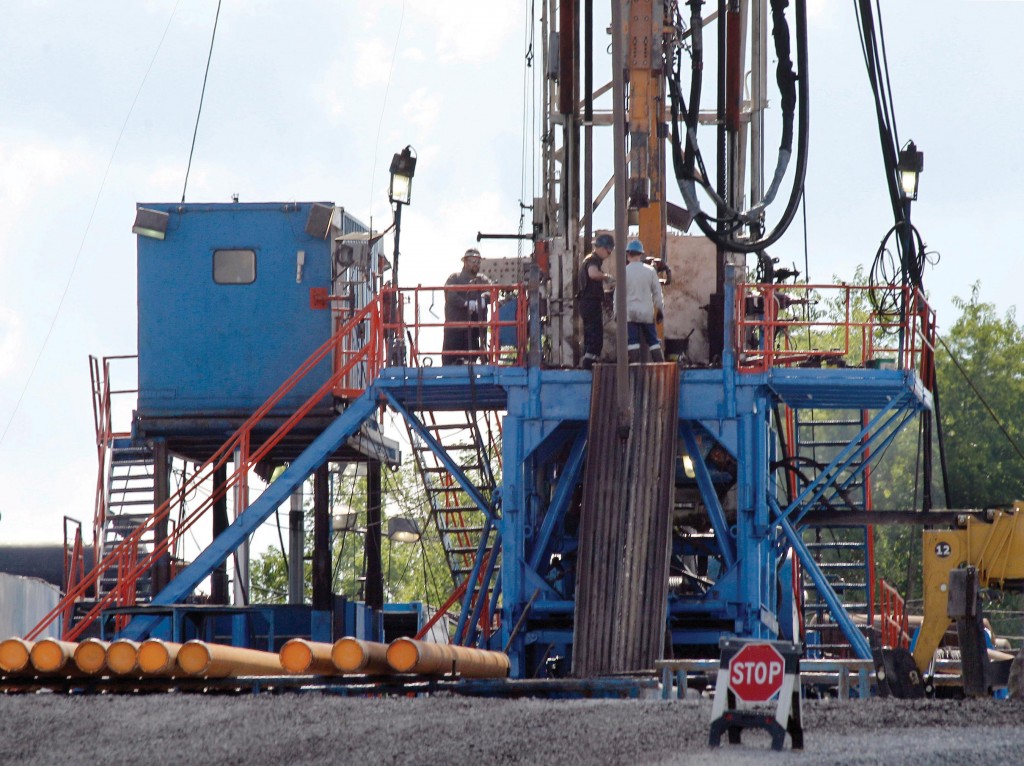
The State Assembly voted to hold off on hydraulic fracturing in New York once again, in part because the state has released no comprehensive study of the drilling’s environmental effects.
The two-year moratorium on fracking passed the Assembly on Wednesday by a 103-40 vote. If it passes the State Senate and is approved by Gov. Andrew Cuomo, the bill would prohibit permits for fracking until 2015.
It would also require a health impact assessment to be conducted by either SUNY Albany, SUNY Buffalo or SUNY Downstate’s school of public health to assist legislators in understanding drilling. Legislators are also waiting for the New York Department of Energy Conservation’s review of fracking.
The moratorium is just the latest in a series of legislation regarding fracking, which involves drilling into natural gas reserves and injecting water, chemicals, and sand to break apart the rocks and extract natural gas. Opponents of the practice are worried about the possible health risks it poses, while supporters are enthusiastic about the economic boom it could bring.
Two other bans on fracking were passed by the Assembly in 2010 and 2011, but the first was vetoed by then-Governor Patterson and the second halted by State Senate inaction.
Robert Sweeney, representative for the 11th Assembly district and a sponsor of the bill, said it would provide New York the opportunity the much-needed time to more fully understand the impacts of fracking.
“Well of course hydrofracking has been a major issue in the state now,” he said. “And for all those years the assembly has been pushing for better understanding of health impacts and the process that the DEC and the Department of Health are engaged in now is not going to provide us that information as far as we can tell.”
Opponents of the bill, such as State Senator Tom Libous, say that the future of hydraulic fracturing should be decided by scientists and public health experts, not politicians.
“The decision on natural gas drilling should not be left to politicians or Hollywood actors,” Libous said in a statement. “It should be left to the scientists, geologists and health experts at the Department of Environmental Conservation and Department of Health.”
Assemblywoman Donna Lupardo of the 126th Assembly district, which encompasses Binghamton University, supports the bill and stressed the importance of its comprehensive health impact assessment.
“It is very likely that the [assessment] is complete but has not yet been released pending a review of the document by the Department of Health (DOH),” she wrote in an email.
Steve Herz, a member of the Joint Landowners Coalition of New York, Inc., which advocates fracking, opposes the moratorium.
“We feel this has no value as far as proposing anything reasonable,” he said. “It’s simply another delay tactic in a five-year-long series of delays.”
Wes Gillingham, the program director for conservationist group Catskill Mountainkeepers, disagrees.
“I think it speaks to the fact that the legislature now really is asking for more information,” Gillingham said. “And it makes absolute no sense to go forward with fracking permits until we take a closer look at health impacts.”


